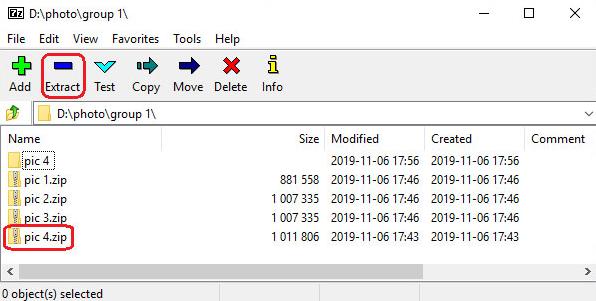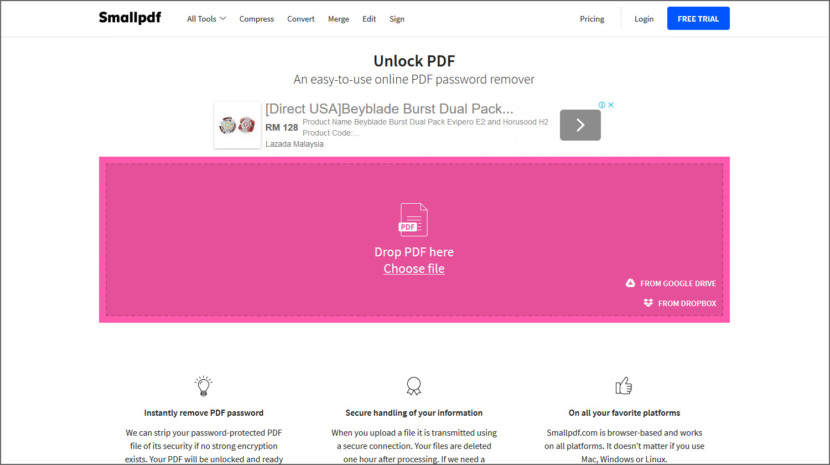In today’s digital age, privacy and security have become major concerns for individuals who use messaging apps like WhatsApp. With the growing number of cyber threats and the increasing need to protect sensitive conversations, setting a password for your WhatsApp chats has become essential. By adding an extra layer of security to your chats, you can ensure that only authorized individuals have access to your private messages. In this blog post, we will explore various methods to set a password for your WhatsApp chats and provide step-by-step instructions for each method.
Video Tutorial:
Why You Need to Set a Password for WhatsApp Chat
There are several reasons why setting a password for your WhatsApp chats is crucial. Let’s explore some of these reasons:
1. Enhanced Privacy: By setting a password, you can ensure that only individuals with the password can access your chats. This adds an extra layer of privacy and protects your sensitive conversations from unauthorized access.
2. Protection from Unauthorized Access: In case your phone falls into the wrong hands or gets stolen, having a password for your WhatsApp chats can prevent unauthorized individuals from reading your private messages. It adds an additional barrier of security to your personal information.
3. Prevents Potential Hacks: Hackers are constantly evolving their techniques to gain access to personal data. By setting a password, you can protect your WhatsApp chats from potential hacks and ensure that your conversations remain safe.
4. Secure Sensitive Information: If you share sensitive information or personal details in your WhatsApp chats, setting a password can help safeguard this information. It adds an extra level of security and prevents any unauthorized access to important or confidential data.
Now that we understand the importance of setting a password for WhatsApp chats, let’s explore different methods to achieve this.
Method 1: Using WhatsApp’s Built-in Security Features
WhatsApp offers built-in security features that allow you to set a password for your chats. Here’s how you can do it:
1. Open WhatsApp on your smartphone and go to the “Settings” menu.
2. Tap on “Account” and then select “Privacy.”
3. Scroll down and find the “Fingerprint lock” option and enable it.
4. Follow the on-screen instructions to set up your fingerprint or any other security method like a PIN or pattern.
5. Once set up, you can choose the lock duration – immediately, after 1 minute, or after 30 minutes of inactivity.
6. Your WhatsApp chats are now protected with a password, and you will need to use your fingerprint or enter the chosen security method every time you open the app.
Pros:
1. Easy and convenient method to secure your WhatsApp chats.
2. Uses your smartphone’s biometric authentication for added security.
3. No need to install third-party applications.
Cons:
1. Limited to smartphones with biometric sensors.
2. May experience occasional fingerprint recognition issues.
3. Security method relies on the security of your smartphone’s lock screen.
Method 2: Using Third-Party App Locker
If your smartphone does not have a built-in fingerprint lock or you prefer an alternative method, you can use third-party app lockers to secure your WhatsApp chats. Here’s how:
1. Install a trusted app locker from the Google Play Store or Apple App Store.
2. Open the app locker and set up a password or PIN to access the app locker.
3. Grant necessary permissions to the app locker when prompted.
4. Search for WhatsApp in the list of installed apps within the app locker.
5. Enable the lock feature for WhatsApp.
6. Now, every time you open WhatsApp, you will be prompted to enter the app locker password or PIN.
Pros:
1. Can be used on smartphones without built-in fingerprint locks.
2. Provides an extra layer of security for WhatsApp chats.
3. Offers additional features such as hiding app icons, locking other apps, etc.
Cons:
1. Some app lockers may have limited functionality in free versions.
2. Adds an extra step to access WhatsApp chats.
3. Requires granting additional permissions to the app locker.
Method 3: Via WhatsApp Web and Two-Step Verification
Another method to secure your WhatsApp chats is to enable two-step verification and restrict access to your WhatsApp account through WhatsApp Web. Here’s how:
1. Open WhatsApp on your smartphone and go to the “Settings” menu.
2. Tap on “Account” and then select “Two-step verification.”
3. Tap on “Enable” and create a six-digit PIN.
4. Confirm your PIN and provide an email address.
5. Verify the email address, which will be used for account recovery in case you forget your PIN.
6. Open WhatsApp Web on your computer and scan the QR code using your smartphone.
7. Now, even if someone tries to access your WhatsApp account through WhatsApp Web, they will be prompted to enter the PIN you set.
Pros:
1. Adds an extra layer of security to your WhatsApp account.
2. Prevents unauthorized access through WhatsApp Web.
3. Provides account recovery options through email address.
Cons:
1. Requires additional steps to access WhatsApp through WhatsApp Web.
2. The PIN needs to be remembered to gain access to WhatsApp.
Method 4: Using Third-Party Chat Locker Apps
Apart from app lockers, there are specific apps designed to lock individual chats in messaging applications. You can use these apps to secure your WhatsApp chats. Follow these steps:
1. Install a trusted chat locker app from the Google Play Store or Apple App Store.
2. Open the chat locker app and set up a password or PIN to access the app.
3. Grant the necessary permissions to the chat locker app when prompted.
4. Open the chat locker app and select WhatsApp from the list of supported apps.
5. Enable the lock feature for the desired WhatsApp chats.
6. Now, whenever you open the locked chats, you will be prompted to enter the app password or PIN.
Pros:
1. Allows you to lock specific WhatsApp chats individually.
2. Offers additional features like hiding chat notifications, preventing screenshots, etc.
3. Adds an extra layer of security to sensitive chats within WhatsApp.
Cons:
1. Some chat locker apps may have limited functionality in free versions.
2. Requires granting additional permissions to the chat locker app.
3. May experience occasional issues with notifications or chat syncing.
What to Do If You Can’t Set a Password for WhatsApp Chat
If you are unable to set a password for your WhatsApp chat using the above methods, here are some potential fixes:
1. Check for Updates: Ensure that you have the latest version of WhatsApp installed on your smartphone. Sometimes, new security features are added in updates, which could resolve the issue.
2. Restart Your Phone: Try restarting your smartphone and then follow the steps again to set a password for your WhatsApp chat. This can sometimes resolve temporary glitches.
3. Clear Cache: Clearing the cache of your WhatsApp application might help fix any issues that are preventing the password settings from working correctly. You can do this by going to your phone’s settings, selecting “Apps,” finding WhatsApp, and tapping on “Clear Cache.”
4. Reinstall WhatsApp: As a last resort, you can try uninstalling WhatsApp, restart your phone, and then reinstall the app from your respective app store. This can help resolve any underlying issues or conflicts preventing the password settings from working.
Bonus Tips
Here are a few bonus tips to enhance the security of your WhatsApp chats:
1. Enable Two-Step Verification: In addition to setting a password for your WhatsApp chats, enabling two-step verification adds an extra layer of security to your WhatsApp account as a whole. It requires you to enter a PIN whenever you register your phone number with WhatsApp again. You can enable two-step verification by going to the “Account” settings in WhatsApp.
2. Be Cautious of Phishing Attempts: Be vigilant and avoid clicking on suspicious links or sharing personal information with unknown contacts. Phishing attempts can compromise the security of your WhatsApp chats and other personal data.
3. Regularly Update WhatsApp: Keep your WhatsApp application up to date by installing the latest updates available. New updates often include bug fixes and security enhancements that help protect your WhatsApp chats.
5 FAQs
Q1: Does setting a password for WhatsApp chats encrypt the messages?
A: No, setting a password for WhatsApp chats does not encrypt the messages. It only adds an additional layer of security to access the chats. To ensure end-to-end encryption for your WhatsApp messages, both the sender and receiver need to have the latest version of WhatsApp and the encryption feature enabled.
Q2: Can someone still read my WhatsApp messages if they have access to my phone?
A: If someone has access to your unlocked phone, they can potentially read your WhatsApp messages. Setting a password, PIN, or using an app locker adds an extra layer of security to protect your chats from unauthorized access in such scenarios.
Q3: Can I use multiple methods to secure my WhatsApp chats simultaneously?
A: Yes, you can use multiple methods simultaneously to secure your WhatsApp chats, if desired. For example, you can set a password in WhatsApp’s built-in security features and also use a third-party app locker or chat locker app.
Q4: What happens if I forget the PIN or password for my WhatsApp chats?
A: If you forget the PIN or password for your WhatsApp chats, you can use the recovery options provided by the respective method you used. This may involve using your fingerprint, recovering the PIN through an email address, or using the account recovery settings of the app locker or chat locker app.
Q5: Can I set a different password for different WhatsApp chats?
A: No, the methods discussed in this blog post do not allow setting different passwords for different WhatsApp chats. However, using third-party app lockers or chat locker apps may offer this functionality.
Final Thoughts
Setting a password for your WhatsApp chats is a crucial step in ensuring the privacy and security of your conversations. Whether you choose to use WhatsApp’s built-in security features, third-party app lockers, or chat locker apps, each method provides an additional layer of security to protect your private messages. Make sure to consider the pros and cons of each method and choose the one that suits your needs best. By following the steps outlined in this blog post, you can take control of your WhatsApp chats and have peace of mind knowing that your conversations are secure and protected.{“@context”:”https://schema.org”,”@type”:”FAQPage”,”mainEntity”:[{“@type”:”Question”,”name”:” Does setting a password for WhatsApp chats encrypt the messages?”,”acceptedAnswer”:{“@type”:”Answer”,”text”:” No, setting a password for WhatsApp chats does not encrypt the messages. It only adds an additional layer of security to access the chats. To ensure end-to-end encryption for your WhatsApp messages, both the sender and receiver need to have the latest version of WhatsApp and the encryption feature enabled.”}},{“@type”:”Question”,”name”:” Can someone still read my WhatsApp messages if they have access to my phone?”,”acceptedAnswer”:{“@type”:”Answer”,”text”:” If someone has access to your unlocked phone, they can potentially read your WhatsApp messages. Setting a password, PIN, or using an app locker adds an extra layer of security to protect your chats from unauthorized access in such scenarios.”}},{“@type”:”Question”,”name”:” Can I use multiple methods to secure my WhatsApp chats simultaneously?”,”acceptedAnswer”:{“@type”:”Answer”,”text”:” Yes, you can use multiple methods simultaneously to secure your WhatsApp chats, if desired. For example, you can set a password in WhatsApp’s built-in security features and also use a third-party app locker or chat locker app.”}},{“@type”:”Question”,”name”:” What happens if I forget the PIN or password for my WhatsApp chats?”,”acceptedAnswer”:{“@type”:”Answer”,”text”:” If you forget the PIN or password for your WhatsApp chats, you can use the recovery options provided by the respective method you used. This may involve using your fingerprint, recovering the PIN through an email address, or using the account recovery settings of the app locker or chat locker app.”}},{“@type”:”Question”,”name”:” Can I set a different password for different WhatsApp chats?”,”acceptedAnswer”:{“@type”:”Answer”,”text”:” No, the methods discussed in this blog post do not allow setting different passwords for different WhatsApp chats. However, using third-party app lockers or chat locker apps may offer this functionality.”}}]}





